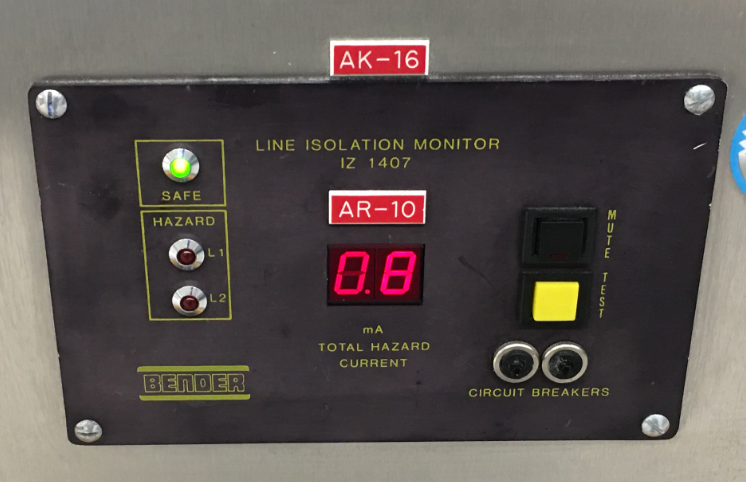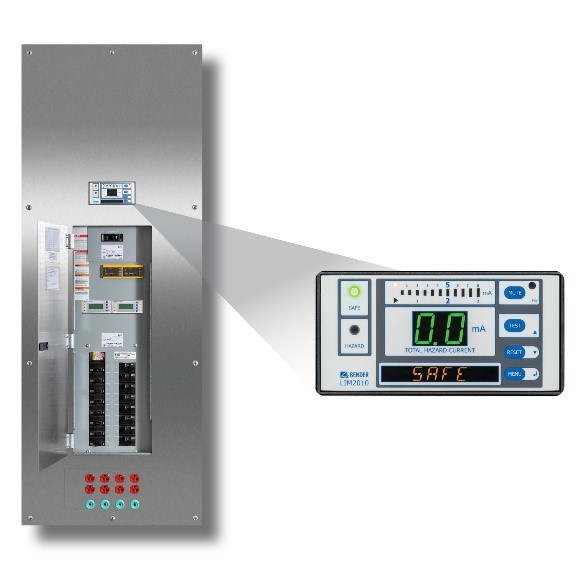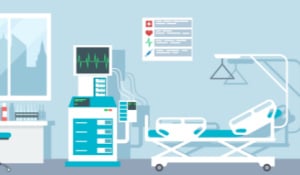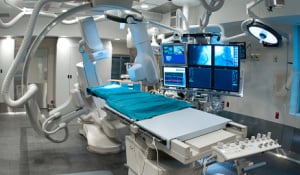Case Study: Resolving Electrical Issues in Operating Rooms via Virtual Services

In the beginning of 2020, Bender was contacted to test the Isolated Power Systems (IPS) that were used to provide power to nine operating rooms in two large Canadian hospitals. The panels required testing because the associated Line Isolation Monitor (LIM) that was monitoring the IPS was not responding to any tests. Several of the existing LIMs were outdated and nuisance alarms were occurring frequently, causing disruptions to patient care and interrupting hospital personnel’s busy schedules. In order to diagnose what was causing these nuisance alarms, a Bender technician went to the site to investigate.
Diagnosing the Problem
After testing the panels as per CSA Z32 recommendations, it was noted that there were quite a few issues with the installation and the receptacles being fed by the IPS, as well as with the LIMs themselves. A few receptacles had polarity issues that were causing incorrect readings. The receptacle retention force that was meant to keep a plug in place was lower than the requirements stipulated in the CSA Z32 standard. This could potentially cause the plug to fall out inadvertently or not make a connection to the power it required to remain functional.
The existing LIMs that were connected to the IPS were old units that had exceeded their recommended lifecycle for being in operation (Image 1). Since the LIMs contain electronic components and are in operation 24/7, there is a lifespan associated with their internal circuits and, therefore, need to be checked annually. Some of the LIMs had trouble responding to bolted ground faults, resistive faults, and some failed to alarm entirely on the danger that was simulated into the system by the Bender LT3000 tester. For many of the ORs in these hospitals, it meant that the IPS was supplying power but not being monitored as needed, posing a safety risk to the staff and patients within the operating rooms.
Bender’s Analysis and Report
Bender’s solution was to replace all existing and outdated LIMs with the new Bender LIM2010 (below). This digital LIM has significantly better noise suppression than previous models to manage the complexities in frequencies that medical devices connecting to the IPS characteristically have. In addition, the LIM2010 features a value section to understand the impacts of medical devices with respect to impedance, capacitance, voltage, total hazardous current (THC), and resistance. The consultant and health authority agreed with the LIM retrofit alongside a few receptacles and custom wiring changes, noted on the report. After the installation of the new LIM2010, it was agreed that a Bender representative would be on site to recommission the panels.
Covid-19 Complications and Virtual Services
COVID-19 interrupted this project, causing it to come to a halt due to travel restrictions and quarantine efforts. Without the capability of travel, a challenge was posed on how the panels would be re-commissioned. The hospital’s maintenance department had Bender’s testing equipment, LT3000, which can simulate bolted and resistive faults, to confirm LIM functionality. This led to Bender’s suggestion of providing remote commissioning via video feed to confirm the integrity of the IPS to be tested as per CSA Z32 requirements. The remote commissioning will allow the two hospitals to have increased safety and operational availability in their ORs during the quarantine by resolving the issues that they have with their IPS panels.
This virtual re-commissioning project was a huge success and showcased that despite the obstacles of the COVID-19 pandemic, Bender, the health authority, the consultant, the contractor, and the maintenance group within the hospital, were able to find a solution and bring back much needed safety to the ORs.
For more information about this application or to learn more about Bender technology related to your specific application, contact our team of experts.
This article is for informational purposes only. Bender provides the information "as is" without warranty and is not responsible for its accuracy or reliability. No warranties are given regarding its suitability for any specific circumstances.

.jpg)


